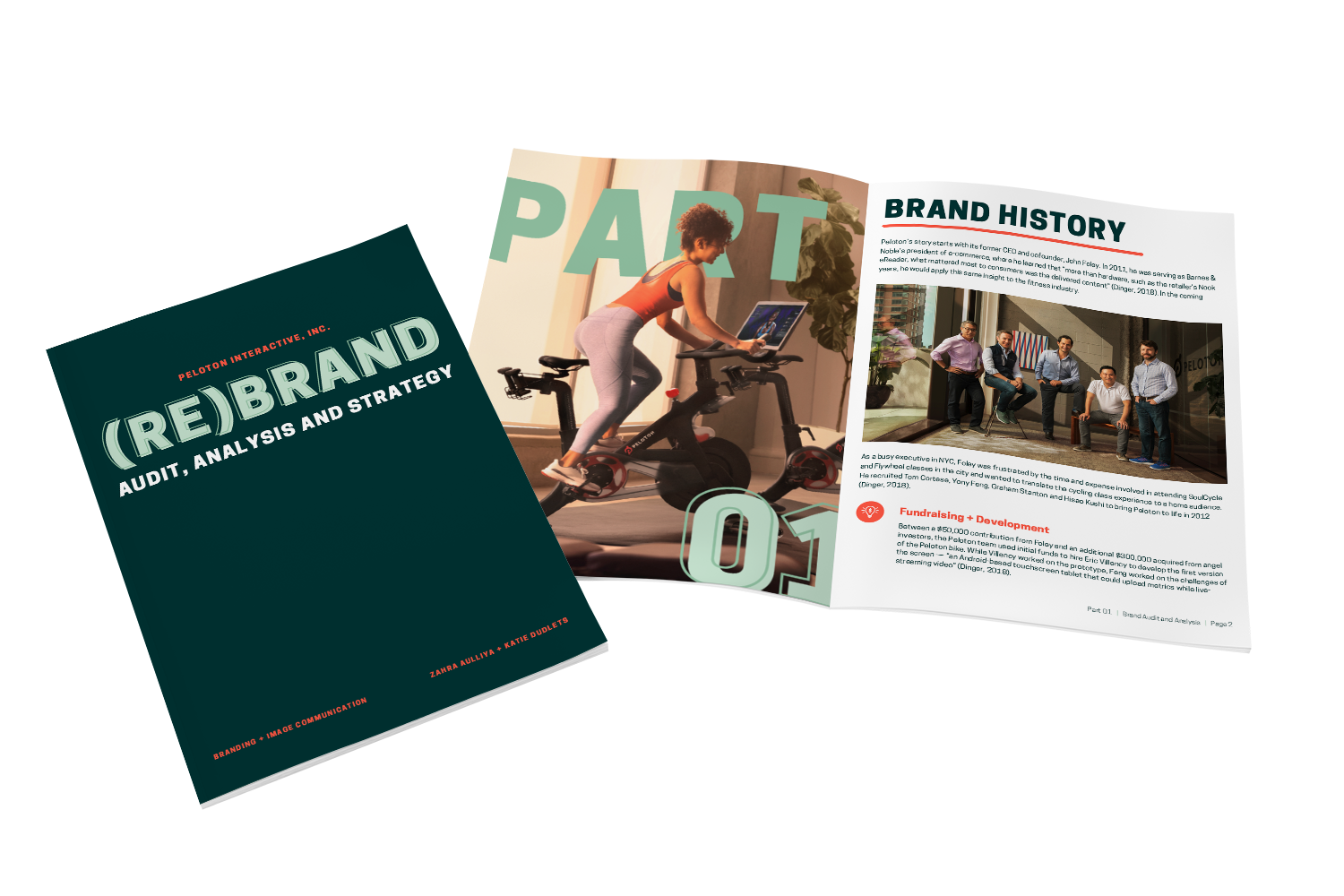The Brief
A brand is more than a product, name or logo. It’s a symbol that allows consumers to differentiate between competitors, make purchasing decisions and project personal identities. While brands reside in the minds of consumers, they can have a very tangible impact on consumer behavior.
Our objective was to assess Peloton’s customer-based brand equity (CBBE) — the differential effect that brand knowledge has on customer response to the marketing of that brand — and identify a data-driven proposal for improvement through a revised integrated marketing strategy. With timely, accurate and actionable information, we could propose the best possible tactical decisions in the short-run and strategic decisions in the long-run.
The Process
The first step was to conduct a brand audit — a comprehensive examination of Peloton’s brand to uncover the sources and strengths of its equity. This included an analysis of Peloton’s product and service attributes, pricing and distribution strategies and current marketing program. We also conducted a survey to gather consumer sentiments and perceptions around the Peloton brand and product portfolio.
Leveraging these insights, we then developed a strategy for improving and leveraging that equity. This included identifying a rebranding plan, designing a revised brand marketing program and projecting impacts to brand awareness, recognition and recall.
The Proposal
We discovered that Peloton’s one-product focus on its stationary bike has significantly damaged customer-based brand equity. While the bike was an innovative idea in 2011 when the marriage between hardware and content streaming was new, that ship has since sailed. Competitors have been able to close the gap in recent years, developing cheaper versions of the bike with similar features, from community leaderboards and charismatic instructors to digital apps with a variety of no-equipment-needed fitness classes.
As the pandemic continues to recede, and consumers revert to regular out-of-home physical activities, Peloton must find a new value proposition.
Through both our market research and survey analysis, we determined that the lack of breadth of brand awareness was Peloton’s biggest strategic shortcoming. They’ve failed to adapt to a changing, post-pandemic market. No longer restricted to their homes, fitness junkies are looking to get back to the gym. But the magic of the community and the strong brand name can be translated to other brand efforts, like gym studio franchises (to reduce the excess inventory) and the digital app (to grow the user base).
We can take this community to the next level, bringing Peloton Studios to local communities and the app to individuals who want the freedom to work out from anywhere. We want to bring Peloton’s energy, ethos and empowerment into communities that so desperately need more community. While Peloton’s bikes and treads may have just been a flickering trend in the fitness industry, there is still much value to be cultivated from the brand they’ve built.

